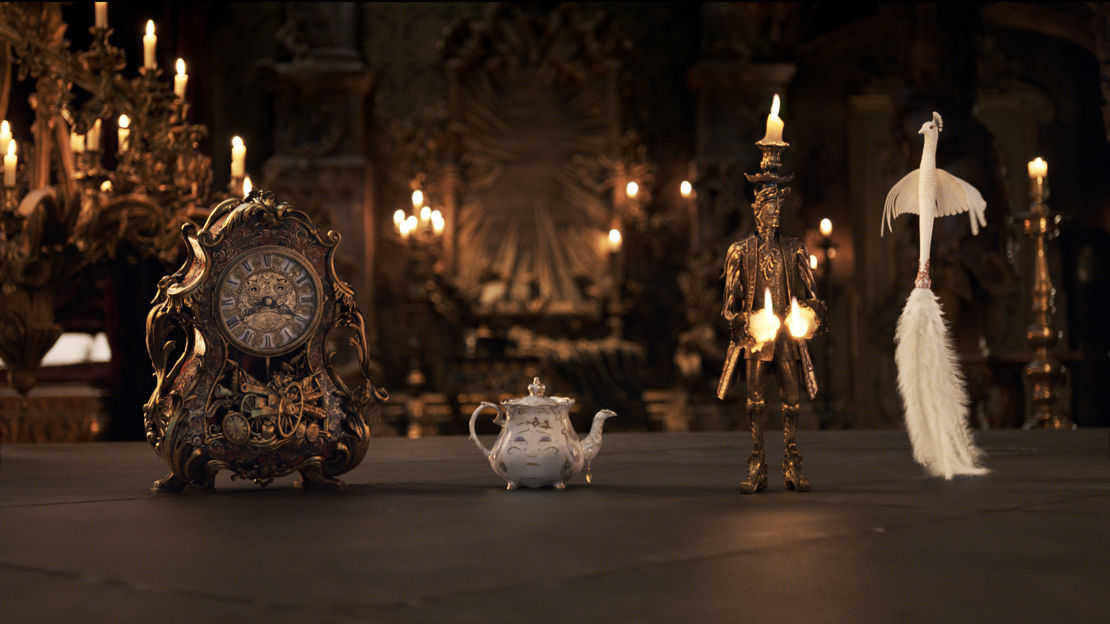Job title: Gaffer
Industries: Film
Lee Walters is a gaffer, responsible for deciding the lighting effects and electrical requirements of a film scene. Recently, he has worked on Jurassic World: Fallen Kingdom, Beauty and the Beast and Assassin's Creed.
Describe your job in your own words?
The gaffer works with the director of photography and is responsible for the lighting on a film. He is basically head of the electrical department. Having decided on the lighting effect required for the scene, under the gaffer's instruction, the team of riggers, carpenters and electricians physically position and supply electricity to all the lighting.
This can range from putting lights on stands to building elaborate platforms or the use of cranes to achieve the desired effect. Once the lights are in position, the task of shaping and focusing the light with cutters and the use of frames and gels gets under way, all to achieve the exact lighting effect that the director of photography desires.
I like to think that the cameraman is the creative leader and the gaffer's job is to support him technically - in other words, the gaffer looks after the paint, while the DoP uses the brush. Though the director of photography very much has a picture in his mind of the way he would like the scene to look, he draws upon the gaffers in-depth knowledge of lighting stock to produce the required effect. The gaffer will also understand the logistical implications of how best to do this.
I'll usually be employed by a producer, but a cameraman will put my name forward and recommend me. Before a film starts, I will go to recce locations with the cameraman. We'll take photos and work out where we can put the lights, how we can run the cables in, where we would need the generators, etc.
We'll also work out if we need rigging for the lights. At this pre-production stage, much liaison takes place with other heads of department to ensure every eventuality has been considered. This may cover everything from discussing with the production designer set design that may incorporate lights to negotiating the siting of generators with the location manager.
A gaffer is in charge of every single bit of light on a film. On a smaller film, because the gaffer's team provides the generator, it can mean that you're in charge of all the electricity on the set - everything from the main lights to putting in a feed for the wardrobe department or the hair dryers for the hair and make-up. On a bigger film, there are more unit facilities, so you can concentrate solely on the set lighting.
By way of an example, when I worked on Sahara, we had to shoot a scene outdoors with Penelope Cruz and Matthew McConaughey. It was a rather dull, cloudy day but for the sake of continuity we needed to make it look like there was bright sunshine. So we built eight 24ft towers and placed eight 18K (18,000 watts) lights - the biggest available - on the towers to light a 150ft by 20ft area. We had 15 electricians on that job. We had to re-create the sun that day.
How did you get into the industry?
My dad worked for a lighting company and a good friend of his asked me to work for his company, Film Lighting Associates, during the summer after I left school. It was in a warehouse full of lights and stands and my job would be to load them up for film shoots. It was a pretty horrible job. But over time I got to know people. I effectively served my apprenticeship there, learning, listening and keeping my ears open.
People then started asking if I would go on jobs to help out as an electrician's mate. I would often do it for no money, just to get experience, and worked on short films and pop videos. Eventually I was asked to do bigger films, often by the people who I had worked with on the short films, and managed to build up my CV.
What training or education did you find most useful?
I did my City and Guilds electrical installation, day release, while working in the warehouse. It taught me the basics of electrics but it's not about lighting specifically and is only partly relevant to the job. To be honest I learnt 95% of my skills from other electricians in the industry.
What advice would you give to someone just starting out?
One of the major skills you need is the ability to get on with people. In fact, 50% of the job is about getting on with people and the other 50% is about your electrical knowledge.
You have to be very reliable and trustworthy, with a degree of stamina as the hours can often be both mentally and physically demanding, especially when away on location. It is vital to stay up-to-date with new products and technologies that evolve and emerge. A close working relationship with the lighting rental houses is very helpful for this.
A lot of it is about confidence. If there is a problem, you've got to seek out the solution as quickly and efficiently as possible, often by drawing upon the combined knowledge of the skilled team you have put together to do the film.
